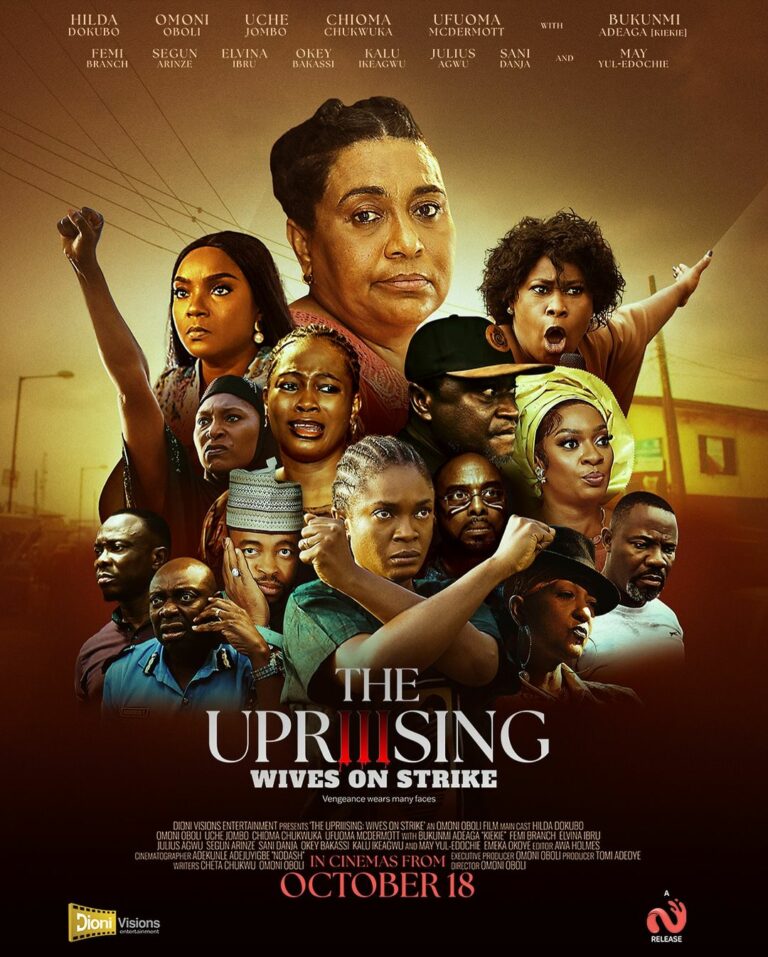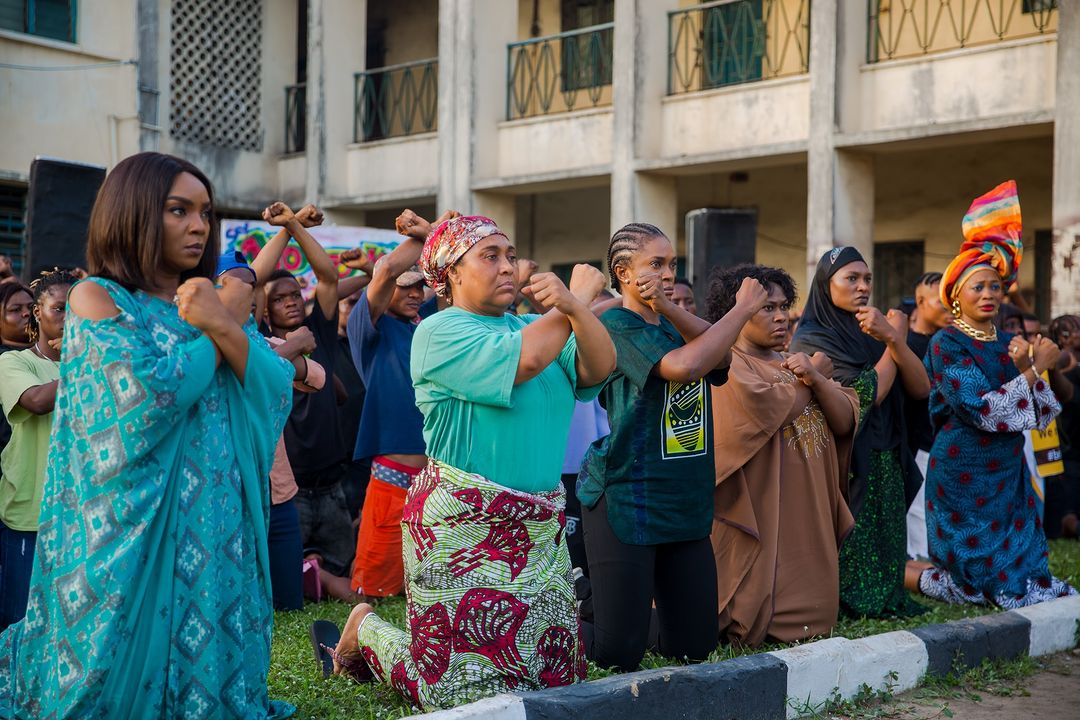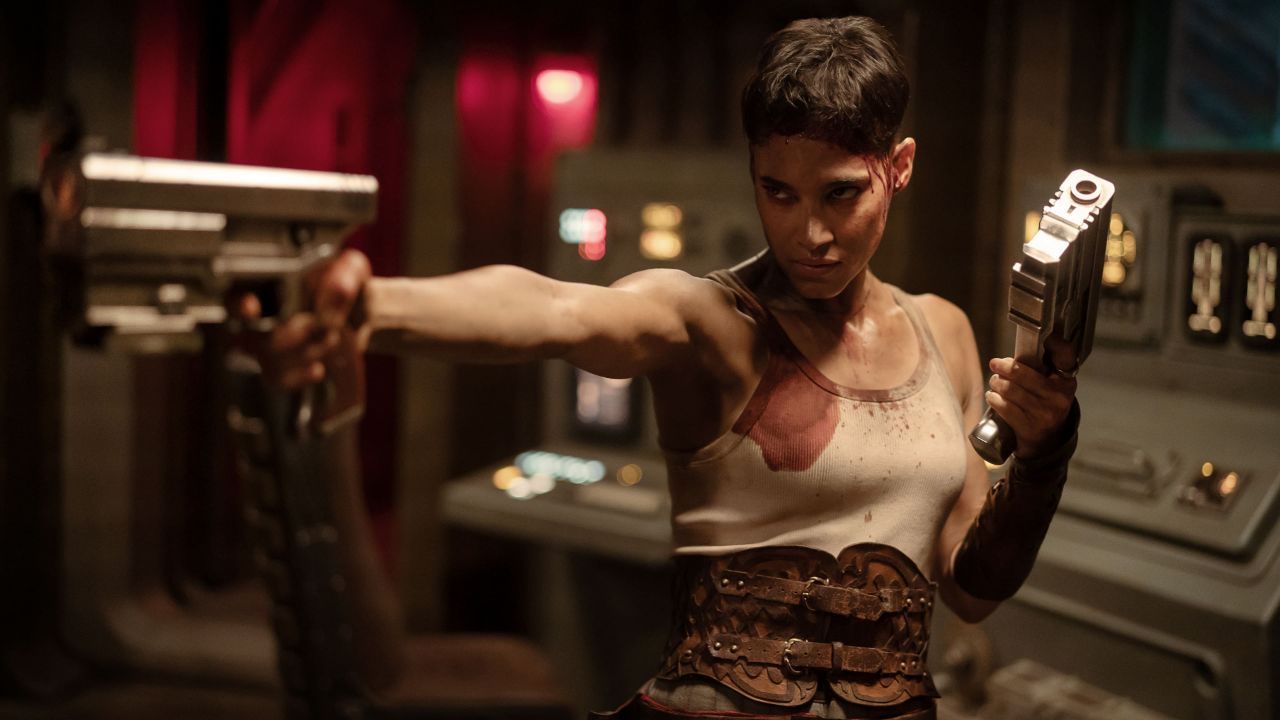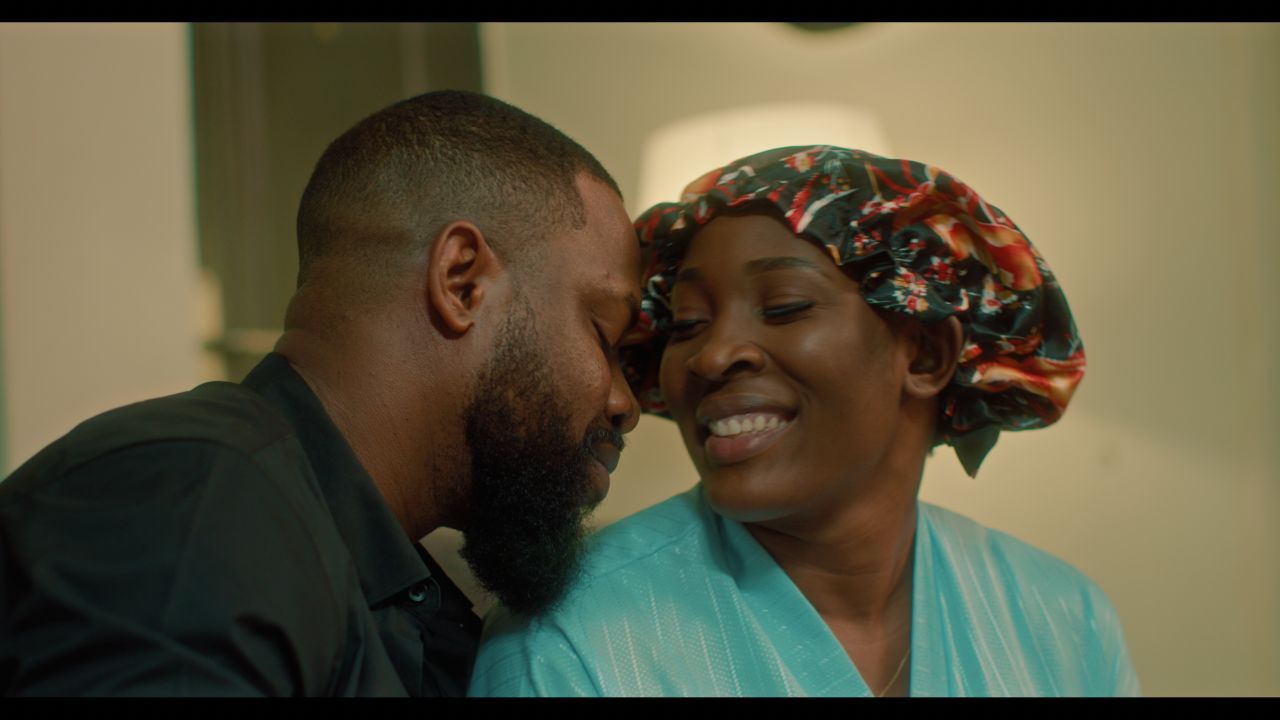Anger is a powerful catalyst for change. A teenage girl’s forced marriage to an older man sparks outrage among a group of market women, resulting in a collective decision to deny their husbands any sexual relations as a form of protest. This spreads quickly and before long, it becomes a nationwide women’s protest. That was the premise of Omoni Oboli’s 2016 Wives on Strike which has spawned two sequels and cemented its status as a social satire. In the latest instalment, Wives on Strike: The Uprising, Oboli tackles fresh themes, channelling the wives’ outrage into an emotional story of loss, sisterhood and revenge. Coincidentally, the film exists during a period of heightened national consciousness; it’s not just the wives that are angry— Wives on Strike: The Uprising echoes a people’s collective discontent with a society in turmoil.

On the surface, Wives on Strike: The Uprising may tell a common story of a bright-eyed university graduate kidnapped on his way back home and his mother’s relentless pursuit of his freedom. But it gets worse. Ayo (Folaremi Agunbiade) is a communal property; he doesn’t belong to his mother alone, so we have a whole drama tactfully laid out by Oboli. The husbands of these wives are not whining this time about their wives’ refusal to have sex with them; they are as interested as they are invested in the situation that kicks off a chain of tragic events that almost spirals out of control. Or does it?
The women in Wives on Strike may be poor and uneducated, but they refuse to cower silently. They are feminists even if they might not understand the concept of feminism. They know gender injustice when they see it; they recognize the need for a change and that their joint action is their power. Also, it is noteworthy that the filmmakers make laudable progress from the previous instalments where the wives’ weapon for change was sex denial, an idea that unintentionally pushed a crude narrative. Since the original film’s release, Wives on Strike has been an ode to Woman Power, and this latest instalment is no different.
Omoni Oboli makes a remarkable comeback to the big screen with Wives on Strike 3, away from her recent foray into YouTube. Her directing which shows growth is impressive. She strings together moments of tension, humor, and reflection, crafting a compelling narrative that captivates her audience from start to finish. As an actor, she brings an intensity to her Mama Ngozi character in this sequel that makes her unforgettable. She projects intelligence and charisma as the film’s inspired voice of reason and leader, even if there’s a certain flatness to her moral determination. Uche Jumbo continues to thrive in her Madam 12:30 character as does her constantly horny husband, Callistus (Julius Agwu). Chioma Akpotha (Vera), another alum, might have her own interiority as a senator’s wife but she also has a strong sense of self. Unlike the first time she appeared in this franchise, there are not enough layers to her character.
Hilda Dokubo is a luminous newcomer to the Wives on Strike universe that ignites the screen with her mesmerizing portrayal of Ebiere, a mother consumed by her grief and revenge. The moment the film opens at her meat stall in a sombre mood, you’ll know she is a character to watch out for. From her silent, anguished prayer to uncontrollable rage, Dokubo portrays her character with beautiful complexity, stealing scenes as we witness her crack under the weight of her grief. Another first-timer who joins the film is May Yul Edochie as Iya Oloja. She is hard to miss and in the brief scenes she appears, she unexpectedly does not disappoint in her calm delivery as though she has been an Iya Oloja all her life.
While this is undoubtedly a captivating film filled with audience-pleasing moments for cinema-goers, it occasionally relies on familiar tropes and predictable plot points. Wives on Strike 3 is at times chaotic as the marketplace where these women ply their trade. Also, the humour can sometimes feel exaggerated but you can indulge and endure it. However, it only slightly detracts from the overall impact of the film. The outstanding performances and the film’s ability to evoke genuine emotions more than compensate for those shortcomings. There is, after all, a smart plot twist most viewers won’t see coming.
The best films leave viewers with a question, something they can ponder and continue to examine long after the film ends. Oboli’s 2024 Wives on Strike achieves that, forcing both her characters and the viewers to question how far they would be willing to go to protect the ones they love, and where to draw the line, if at all. This might seem a bit of a high praise, but Wives on Strike 3 is Omoni Oboli’s best film yet.
Wives on Strike 3 premiered at the Cinemas on October 18.
Share your thoughts in the comments section or on our social media accounts.
Keep track of upcoming films and TV shows on your Google calendar.
Side Musings
- Looks like Segun Arinze is comfortable being Nollywood’s resident police chief.
- At this point it’s safe to say that Kiekie’s male version is Broda Shaggi. Like him, she doesn’t know when to stop. She goes overboard with her comic roles a lot.
- Wives on Strike marks Moses Babatope’s Nile Entertainment’s first theatrical release. Quiz lovers, note that for future quiz shows. It might make you a millionaire.
- This might not be a conclusion. One can never tell with franchises.






“At this point it’s safe to say that Kiekie’s male version is Broda Shaggi. Like him, she doesn’t know when to stop. She goes overboard with her comic roles a lot. ”
I agree
and yes, Segun Arinze has moved from resident bad boy to resident police chief.